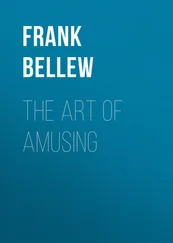Frank Abagnale - The Art of the Steal
Здесь есть возможность читать онлайн «Frank Abagnale - The Art of the Steal» весь текст электронной книги совершенно бесплатно (целиком полную версию без сокращений). В некоторых случаях можно слушать аудио, скачать через торрент в формате fb2 и присутствует краткое содержание. Год выпуска: 2001, ISBN: 2001, Издательство: Broadway Books, Жанр: Старинная литература, на английском языке. Описание произведения, (предисловие) а так же отзывы посетителей доступны на портале библиотеки ЛибКат.
- Название:The Art of the Steal
- Автор:
- Издательство:Broadway Books
- Жанр:
- Год:2001
- ISBN:9780767910910
- Рейтинг книги:4 / 5. Голосов: 1
-
Избранное:Добавить в избранное
- Отзывы:
-
Ваша оценка:
- 80
- 1
- 2
- 3
- 4
- 5
The Art of the Steal: краткое содержание, описание и аннотация
Предлагаем к чтению аннотацию, описание, краткое содержание или предисловие (зависит от того, что написал сам автор книги «The Art of the Steal»). Если вы не нашли необходимую информацию о книге — напишите в комментариях, мы постараемся отыскать её.
The Art of the Steal — читать онлайн бесплатно полную книгу (весь текст) целиком
Ниже представлен текст книги, разбитый по страницам. Система сохранения места последней прочитанной страницы, позволяет с удобством читать онлайн бесплатно книгу «The Art of the Steal», без необходимости каждый раз заново искать на чём Вы остановились. Поставьте закладку, и сможете в любой момент перейти на страницу, на которой закончили чтение.
Интервал:
Закладка:
AN IDENTITY THEFT QUIZ
As with all fraud, prevention is the most valuable step you can take against identity theft. Police are not sufficiently trained to investigate this crime and jurisdiction is often a problem, since you may live in Maine and the person who stole your identity may be in Idaho. I understand the FBI has been speaking to local police departments and asking them what they want from the FBI. The police tell them that they can handle local drug problems really well. What they can’t handle is if someone walks in and says he or she is a victim of identity theft. So they want the FBI to get more involved in white-collar crime, and I think you’ll see that start to happen in the years to come. Right now, though, it’s hard to get the attention of the FBI, because it usually requires a threshold of $250,000 before it tackles a fraud case. There are 13,500 FBI agents in the world, and only 3,000 are assigned to financial crimes.
The best thing you can do is to count on yourself. I devised a little identity theft quiz to give yourself to determine how susceptible you are. Each of the following statements represents a possible avenue for ID theft. If any of them describes you, add the points to your score.
• You receive several offers of pre-approved credit every week (5 points). Add five more if you don’t shred them before putting them in the trash.
• You carry your Social Security card in your wallet (10 points).
• You don’t have a post office box or a locked, secured mailbox (5 points).
• You drop off your outgoing mail at an open, unlocked box or basket (10 points).
• You carry your military ID in your wallet at all times (10 points).
• You don’t shred or tear banking and credit information when you throw it in the trash (10 points).
• You provide your Social Security number whenever asked (10 points). Add five points if you provide it orally without checking to see who might be listening.
• You’re required to use your SSN as an employee or student ID number (5 points).
• Your SSN is printed on an employee badge that you wear (10 points).
• Your SSN or driver’s license number is printed on your personal checks (20 points).
• You are listed in a Who’s Who guide (5 points).
• You carry your insurance card in your wallet and it contains your SSN or your spouse’s SSN (20 points).
• You haven’t ordered a copy of your credit report for at least two years (10 points).
• You don’t believe that people root around in your trash looking for credit or financial information (10 points).
If you scored more than 100 points, you’re at high risk. You should purchase a paper shredder, become more security aware in document handling, and start to question why people need your personal data. If you scored 50–100 points, your odds of being victimized are about average, though higher if you have good credit. If you scored 0–50 points, my congratulations. You’ve got a high security IQ. Keep up the good work and don’t let your guard down now.
A NEED TO KNOW BASIS
As you can see from that test, to steer clear of identity thieves you really need to adopt a “need to know” approach to all of your personal data. In the future, someone had better prove to you why he must have any of your information before you give it to him.
You have to memorize key numbers like PIN numbers and Social Security numbers, rather than carry cards around with you. If you’re making a phone call that requires you to convey personal information, don’t do it at an open booth where someone can overhear you. Ever more popular cell phones are even more susceptible to eavesdropping, so be especially wary of passing along personal information on a phone.
It makes sense to keep a minimum number of credit cards, so that it’s easier to keep track of them. But no matter how many or few you have, make sure you check all of your financial statements carefully. So often we take a quick look at our credit card statements, and if the total seems about right, we just pay the bill and toss the statement aside.
If you don’t receive a monthly statement for any account, that could be a tip-off; call immediately and ask about it. If you’re notified that your statements are being mailed to another address that you haven’t authorized, tell the financial institution what has happened and that someone may have accessed your account. And maintain your own records of your spending. Then if you need to dispute a transaction, your records will support you.
When you order checks, refrain from putting any additional information about yourself—your address, middle name or initial—on them, since checks can be lost or stolen. I’m amazed at how many people put their Social Security number on their checks. You ask them why and they say they do it because they’re always asked for the number when they cash a check in the store, so they want to make it easy. Sure, for crooks.
Have your personal information deleted or kept private in listings such as phone books, driver and motor vehicle records, direct marketing solicitation lists, and listings by the major credit reporting bureaus.
When you’re traveling, even for brief periods, you should have your mail held at the post office or ask a friend or relative to collect it for you. Mail letters with checks and personal information in them from an office mailbox rather than from your home mailbox. My feeling is the post office ought to ask for ID before granting change of address requests, and they should at least send a card to the current address to confirm the request. Meanwhile, you should write your credit card companies and advise them not to accept any notification of an address change without verifying the change with you.
Don’t ever enter unfamiliar contests or sweepstakes, and I’m not crazy about entering even familiar ones. Any information you give to contests or charities may be sold or reproduced in ways you can’t imagine. If you get an unsolicited call offering you a credit card or prize but wants personal data like your Social Security number, ask for a written application. If they say they can’t do that, hang up. If they do send you an application, look it over carefully and make sure that it’s from a recognizable organization.
I recommend that everyone get a shredder. I have one in my house and one in my office, and I shred everything that goes into the wastebasket, no matter how innocuous it seems, but especially everything that contains any personal information about me. I assume what appears unimportant to me could be very important to a criminal. You should assume the same.
And you really have to stay on top of credit agencies, because for the most part, they take what’s fed to them and don’t verify it. And it’s all one-sided. Anyone who’s a client can send in something bad about you. But you never get asked about it. That’s the biggest problem I have with how they work. They don’t get anything from you; they get it all from who you buy stuff from. In addition, my impression is the error rate of these agencies is horrible. My name is Abagnale. That’s hard to mess up. But what if your name is Smith or Jones? A problem Joe Smith has may end up on Jim Smith’s credit report. And it’ll take a Dream Team of lawyers to get it off.
You ought to get your credit report several times a year and thoroughly check it. Michelle Brown told me she gets hers every month. There are services like Credentials Services International and Inquiry Notification Service that cost about $25 a year, that send you a collated credit report from the principal agencies—Equifax, Experian, and TransUnion—three times a year. Also, when anyone applies for credit in your name, they send you a letter notifying you. I belong to two of these services, so in case one misses something I’m hoping the other one will catch it.
Читать дальшеИнтервал:
Закладка:
Похожие книги на «The Art of the Steal»
Представляем Вашему вниманию похожие книги на «The Art of the Steal» списком для выбора. Мы отобрали схожую по названию и смыслу литературу в надежде предоставить читателям больше вариантов отыскать новые, интересные, ещё непрочитанные произведения.
Обсуждение, отзывы о книге «The Art of the Steal» и просто собственные мнения читателей. Оставьте ваши комментарии, напишите, что Вы думаете о произведении, его смысле или главных героях. Укажите что конкретно понравилось, а что нет, и почему Вы так считаете.












